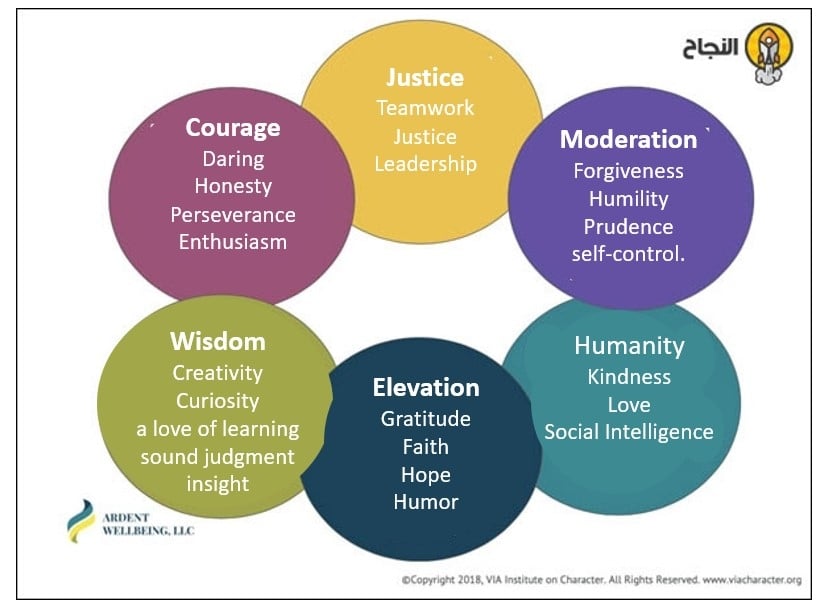It might be the appropriate reaction to the situation, but we all have powerful inner resources called character strengths that can help us deal with adversity and thus can be a source of hope for us.
Character strengths are innate patterns of thought and behavior. Researchers identified 24 strengths, such as social intelligence, courage, curiosity, and honesty, that represent the best human traits and are admired across cultures and periods. People feel energized, competent, and in line with their values when they use their strengths, as it can help them think and act in ways that relieve stress.
Reframing Stress
Reframing stress is one way that character strengths can improve coping skills, and health psychologist Kelly McGonigal claims that how people perceive stress has an impact on their health because it can lead them to believe that there is a threat they cannot handle. However, McGonigal says that if people view stress as a driving force that aids them in defending the things they value, they will be able to “awaken basic character strengths that involve courage, connection, and growth.”
But how do we go about that? By using self-control and curiosity to practice mindfulness, we can first gain a better understanding of our perspectives on stress. People who are mindful keep an objective eye on their emotions. For example, it is preferable to say, "I notice that I’m very stressed," rather than, "I am very stressed." This minor adjustment helps the person feel less connected to the emotion and lessens the severity of the stress.
Practicing the mindfulness pause is one way to develop mindfulness. Dr. Ryan Niemiec advises us to pause and feel our breaths for 10 to 15 seconds before asking, "Which of my character strengths will I use now?"

- Justice: Teamwork, justice, and leadership.
- Courage: Daring, honesty, perseverance, and enthusiasm.
- Wisdom: Creativity, curiosity, a love of learning, sound judgment, and insight.
- Elevation: Gratitude, faith, hope, and humor.
- Humanity: Kindness, love, and social intelligence.
- Moderation: Forgiveness, humility, prudence, and self-control.
Pick a Different Response
We can use judgment and perspective to support our beliefs once we consciously distance ourselves from stress. Where we can ask: "Is there a genuine threat that I am unable to handle?" This perspective makes it simple for us to decide how to respond to the situation.
People can use the rising-to-challenge response, which involves mobilizing resources to take action, in addition to the well-known fight-or-flight or paralysis response to a perceived threat, according to McGonigal. Other healthy responses include realizing that the issue is larger than ourselves, which motivates us to seek out social support from others, as well as looking for lessons learned that can advance our development.
Character strengths can give us tools to deal with problems, as we employ the six categories of strengths depicted in the figure above. Courage can help us while using the rising-to-challenge strategy, while Wisdom can help us re-evaluate situations and use the search for what we can learn. Humanity and justice can help us connect more with others while using the technique of recognizing that the problem is too big for us to solve alone. Moreover, Elevation can help us solve problems that we think are too big for us and take advantage of the protective benefits that positive emotions provide, and Moderation can help us avoid or calm down conflict and stressful situations.
Supporting Values
Another way to relieve stress is to use one's character strengths to take meaningful actions to uphold one's personal values. If we are worried about an election, we can take comfort in knowing that no matter what happens on election day, no one can take away our ability to support the causes that are important to us. If we value social justice, for example, we could use kindness, teamwork, and social intelligence to volunteer in nonprofit organizations, we could use a love of learning and different viewpoints to investigate how others have used justice or courage to effect change in the past, and we could use creativity to produce a piece of art that draws attention to a problem.
To get through the upcoming weeks and months, we must all take the time to think about how we can use our strengths. Researcher Robert McGrath and clinical psychologist Tayyab Rashid's most recent findings are a fantastic source of inspiration, as they offered more than 100 ideas for combating the pandemic by relying on one's character strengths.
We might be able to find common values with others that enable us to get past political and material barriers and collaborate on creating the future we want to see by using our strengths in adaptation and awareness.






Add comment